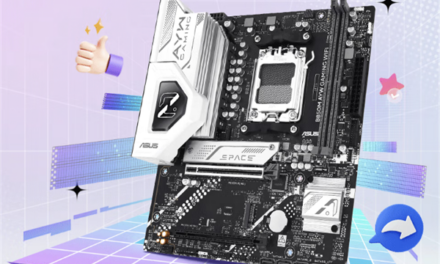
The Future of Cybersecurity in Gaming: Are Your Devices at Risk?

As gaming continues to evolve with emerging technologies like cloud gaming, virtual reality (VR), and blockchain-based games, cybersecurity threats in the gaming industry are becoming more sophisticated. Hackers are finding new ways to exploit vulnerabilities, from phishing scams to malware-infected game mods. With millions of players engaging in online gaming daily, it is crucial to understand the risks and take appropriate measures to protect personal data and digital assets.
Rising Cyber Threats in the Gaming Industry
1. Account Hijacking and Phishing Attacks
One of the most common cybersecurity threats in gaming is account hijacking. Cybercriminals use phishing scams to trick gamers into providing login credentials through fake emails or fraudulent websites that resemble legitimate game publishers.
- Gamers are often lured with free in-game currency, skins, or special promotions, only to have their accounts compromised.
- Stolen accounts can be sold on the black market or used to scam other players.
- Phishing attacks may also lead to financial loss, especially when linked to payment methods.
2. Malware and Ransomware in Game Mods
Malicious software is increasingly being embedded in unofficial game mods, cheat tools, and cracked versions of games. Once installed, these malware programs can steal login credentials, access personal data, or even lock users out of their own systems through ransomware.
A study found that many “free mod sites” often contain trojans, keyloggers, and spyware. In some cases, cybercriminals use iPhone spy apps and other surveillance tools to track a gamer’s online activities, log keystrokes, or even access sensitive personal information stored on mobile devices. These apps, often marketed for parental control or employee monitoring, can be repurposed by malicious actors to exploit unsuspecting gamers.
Ransomware attacks on gamers have risen, where attackers encrypt files and demand payment to unlock them. To avoid falling victim to such threats, always download mods and extensions from official sources or well-reviewed communities. Additionally, regularly scan devices for spyware and other malicious software to ensure privacy and security while gaming.
3. DDoS Attacks and Server Vulnerabilities
Distributed Denial-of-Service (DDoS) attacks are commonly used by hackers to disrupt online multiplayer games. These attacks flood a game server with massive traffic, making it inaccessible for legitimate players.
- Competitive gamers and esports teams have been targeted to disrupt tournaments and ranked matches.
- Some attackers use DDoS-for-hire services to target individual players by exploiting IP addresses.
- Using a VPN can help mask IP addresses and prevent targeting by malicious actors.
4. The Risks of Cloud Gaming
Cloud gaming services such as NVIDIA GeForce Now, Xbox Cloud Gaming, and PlayStation Now rely on streaming technology, making them susceptible to data breaches and service hacks.
- A hacked cloud gaming account means exposed personal information, stored payment methods, and gaming history.
- Cloud gaming providers must continuously enhance encryption and authentication measures to prevent security lapses.
Best Practices for Gamers to Stay Secure
To reduce cybersecurity risks, gamers should adopt the following best practices:
1. Use Strong and Unique Passwords
- Enable two-factor authentication (2FA) on gaming accounts for an extra layer of security.
- Avoid using the same password across multiple gaming platforms.
2. Stay Cautious of Free Offers and Suspicious Links
- Never click on random links promising free in-game items or currency.
- Only purchase add-ons, skins, or game keys from trusted marketplaces.
3. Keep Your System and Software Updated
- Regular updates patch vulnerabilities that hackers exploit.
- Install reliable antivirus software to scan for malware in downloaded files.
4. Secure Your Network and Use a VPN
- A VPN helps protect your real IP address, preventing direct attacks.
- Configure router security settings to block unauthorized connections.
The Impact of Emerging Technologies on Cybersecurity
The rise of emerging technologies like virtual reality (VR), augmented reality (AR), and blockchain gaming introduces both new opportunities and cybersecurity challenges. Understanding these risks is essential for players and developers alike.
Virtual Reality (VR) and Augmented Reality (AR) Risks
VR and AR technologies offer immersive gaming experiences but also open new avenues for cyber threats. Potential risks include:
- Data Privacy Concerns: VR headsets and AR applications collect vast amounts of personal data, including biometric information. If not adequately secured, this data can be exploited by malicious actors.
- Man-in-the-Middle (MITM) Attacks: Hackers can intercept data transmitted between VR devices and servers, potentially gaining access to sensitive user information.
- VR Phishing Scams: Cybercriminals can create fake VR environments to trick users into revealing personal or financial information.
To mitigate these risks, VR and AR developers must implement robust encryption protocols and multi-factor authentication methods to secure user data.
Blockchain and Decentralized Gaming Security
Blockchain technology is revolutionizing gaming by enabling decentralized economies, non-fungible tokens (NFTs), and play-to-earn models. However, it also presents unique security challenges:
- Smart Contract Vulnerabilities: Smart contracts power blockchain-based games, but poorly coded contracts can be exploited by attackers to steal in-game assets.
- Crypto Wallet Attacks: Many blockchain games require crypto wallets for transactions. Hackers often target these wallets using phishing scams and malware to drain funds.
- NFT Scams and Fraud: The growing popularity of NFTs in gaming has led to an increase in counterfeit NFT sales and fraudulent marketplace listings.
Players engaging in blockchain gaming should use hardware wallets, enable multi-factor authentication, and only interact with reputable gaming platforms to minimize risks.
The Future of Cybersecurity in Gaming
As gaming technology advances, cybersecurity measures must evolve alongside it. The future of gaming security will likely include:
- AI-driven threat detection to identify suspicious activities in real time.
- Biometric authentication (facial or fingerprint recognition) for login security.
- Blockchain-based security solutions to enhance identity protection and anti-fraud measures.
Game developers, cybersecurity experts, and gamers alike must remain vigilant in adopting new security practices to ensure a safe gaming environment.

























